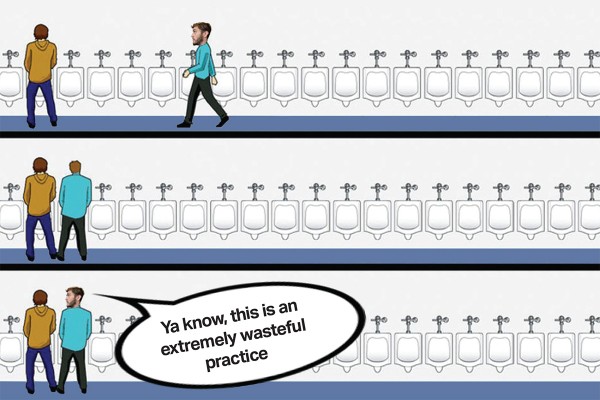The porcelain throne, like any monarchy, is outdated. It’s an invention that was brought into the mainstream in a time of unprecedented wealth and prosperity. It was a groundbreaking innovation, one that brought sanitation into the homes of millions. But we can do better.
Every time you flush the toilet, you are using perfectly good drinking water to literally wash away garbage. You are pouring a valuable resource down the drain. Now, in water-rich parts of the country, we can afford to do this. But in places like Auckland, where water is increasingly becoming something of a concern, it may start to seem insulting to use this cherished resource as a means of disposing of human waste.
Imagine, for example, if we used to have so much petrol that it made sense to use it to flush away our waste – that would look pretty absurd today, wouldn’t it? Looking forward, freshwater flushing seems like an incredibly wasteful practice. It feels like one of those things we’ll look back on with our grandkids, assuming that we make it far enough to have grandkids (plural) without sucking our planet completely dry. I can picture it now: “you won’t believe this, kids, but back in MY day, we used to use water to wash away our number ones and twos! Ha! Now, pass grandpa that state-sponsored bottle of nitrate-free H2O, I need my daily dose.”
We need to think critically about the big-picture ways that we use water, like how we use it to wash away our poop. That seems unnecessary. I don’t know what the solution is, because any solution would probably involve a complete overhaul of the freshwater delivery system and that is, to put it simply, a big job. For example, we can’t just hook up a big pipe to the ocean and flush toilets with seawater, because the entire municipal water system has already been designed and built around fresh water – not salt. But there is at least one alternative: a new design concept involves collecting human waste from a residential complex and using it to feed a culture of bacteria, which then produces energy that can be used to heat the very same complex. But this is expensive. In short, there are no simple solutions. And this brings us to why you should piss in the sink.
While we work on other solutions, we can at least start pissing in the sink or normalise pissing in the shower. It’s, like, the cleanest possible way to pee, and so long as you’re quiet about it, your flatmates will never know. Besides, you’re either pissing in the shower, or you’re lying. Pissing in the sink, for those who are able to piss in the sink, saves a lot of water. The water you use to wash your hands is also used to flush, although it will quickly start to smell. You can also use this time to spray away toothpaste stains.
Those proposals might be a bit facetious, but the point stands. Our current concept of what a toilet is and what a toilet can be is extremely one-dimensional. It’s built on the stalwart assumption that we will always have enough clean water to do anything we want with it, including using perfectly good drinking water to clean away faeces. And we don’t actually have that much. We need to start thinking about a better toilet. In the meantime, to all the sink-pissers and piss-sinkers of Dunedin, I salute you. But I probably won’t shake your hand.






